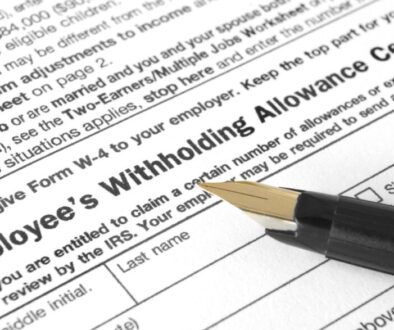Maximizing Your Retirement Savings: Strategies to Reduce Taxes
Maximizing Your Retirement Savings: Strategies to Reduce Taxes
Preparing for a comfortable and financially secure retirement is a top priority for many individuals. However, the complexities of the tax system can often complicate this goal, leaving retirees unsure of how to optimize their savings and minimize their tax burden. In this guide, we will explore a range of strategies and insights to help you navigate the tax landscape and maximize your retirement savings.
Understanding the Federal Tax System
The federal tax system in the United States is a multifaceted framework that encompasses various sources of revenue, including individual income taxes, corporate taxes, payroll taxes, and excise taxes. It is crucial to have a fundamental understanding of how it operates in order to plan effectively for retirement.
Breakdown of Federal Tax Revenue Sources
The federal government collects revenues from a variety of sources, including:
- Individual income taxes
- Corporate income taxes
- Payroll taxes (Social Security and Medicare)
- Excise taxes
- Estate and gift taxes
Strategies for Reducing Taxes in Retirement
As you approach and enter retirement, there are several strategies you can employ to minimize your tax liability and maximize your retirement savings. Let’s explore some of the key approaches:
Leveraging Tax-Advantaged Retirement Accounts
Utilizing tax-advantaged retirement accounts, such as 401(k)s, IRAs, and Roth IRAs, can provide significant tax benefits. Contributions to traditional 401(k)s and IRAs are often tax-deductible, allowing you to defer taxes until retirement, while Roth accounts offer tax-free withdrawals in retirement.
Optimizing Social Security Taxation
The taxation of Social Security benefits can be a complex topic, but understanding the rules and thresholds can help you minimize the tax impact. Strategies like delaying Social Security claims, managing other income sources, and utilizing tax-efficient withdrawal methods can all play a role in reducing the taxes on your Social Security benefits.
Minimizing Withdrawals from Taxable Accounts
Carefully managing the timing and amounts of withdrawals from taxable investment accounts can help you minimize your overall tax burden in retirement. Strategies like tax-loss harvesting, asset location, and coordinating withdrawals with other income sources can be highly effective.
Utilizing Tax-Efficient Withdrawal Strategies
Developing a strategic withdrawal plan that considers the tax implications of different account types (e.g., traditional, Roth, taxable) can help you optimize your retirement income and minimize taxes. Techniques like the “bucket” approach and the “Roth conversion ladder” can be particularly useful.
Exploring Tax-Advantaged Charitable Giving
Charitable giving can provide tax benefits in retirement, particularly through strategies like qualified charitable distributions (QCDs) from IRAs and the use of donor-advised funds. These approaches can help reduce your taxable income while supporting causes you care about.
Understanding the Role of Tax Expenditures
Tax expenditures, also known as tax breaks or deductions, play a significant role in shaping the overall tax burden.
Defining Tax Expenditures
Tax expenditures are reductions in tax liability that result from special exclusions, exemptions, deductions, credits, preferential rates, or deferrals in the tax code. Examples include the mortgage interest deduction, the charitable contribution deduction, and the preferential rates on capital gains and dividends.
Implications for Retirement Planning
Understanding the role of tax expenditures is crucial in retirement planning, as they can have a significant impact on your overall tax liability.
Effective retirement planning requires an extensive understanding of the tax landscape and the ability to navigate its complexities. Let’s explore some additional considerations and best practices:
Coordinating Income Sources
Carefully coordinating the withdrawal of income from various sources, such as traditional retirement accounts, Roth accounts, and taxable investment accounts, can help you manage your overall tax burden in retirement.
Considering the Impact of Tax Brackets
Understanding how your income and withdrawals affect your tax brackets can inform your retirement planning decisions, allowing you to minimize your tax liability through strategic timing and management of income sources.
Staying Informed on Tax Law Changes
The tax landscape is subject to periodic changes, both at the federal and state levels. Staying informed about these updates and adjusting your retirement planning accordingly is crucial to maintaining tax efficiency.
Seeking Professional Guidance
Given the complexity of the tax system and the nuances of retirement planning, it is often beneficial to seek the guidance of financial advisors, tax professionals, and estate planning experts. These professionals can help you navigate the various strategies and ensure you are making informed decisions.
Conclusion
Navigating the tax landscape and optimizing your retirement savings can be a daunting task, but with the right strategies and an extensive understanding of the federal tax system, you can significantly improve your financial well-being in retirement. By leveraging tax-advantaged accounts, managing withdrawals strategically, and exploring tax-efficient charitable giving, you can minimize your tax burden and maximize the longevity of your retirement savings. Remember to stay informed, seek professional guidance, and adapt your plan as the tax landscape evolves, ensuring a secure and financially rewarding retirement.




